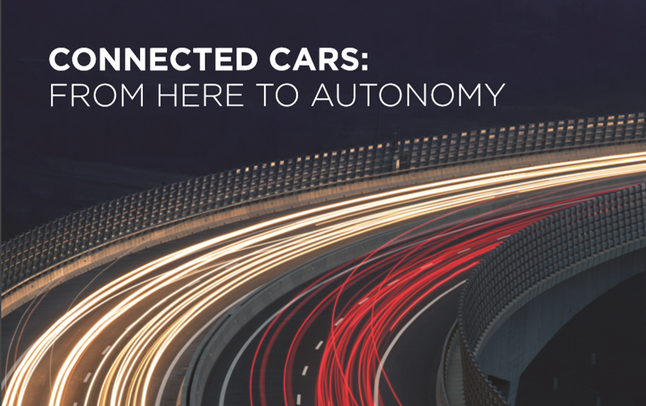According to a new report by Mobile World Live, over 73 % of respondents within the connected car navigation sector are already well aware of Galileo.
Following one of the most comprehensive market surveys of the  connected car industry, Mobile World Live has published its new report Connected cars – from here to autonomy. Split into sections covering everything from market overview to connectivity, navigation, autonomous driving, security and in-car services, the European GNSS Agency (GSA) contributed to the chapter on navigation.
connected car industry, Mobile World Live has published its new report Connected cars – from here to autonomy. Split into sections covering everything from market overview to connectivity, navigation, autonomous driving, security and in-car services, the European GNSS Agency (GSA) contributed to the chapter on navigation.
“The report reveals a strong appetite for the benefits connected cars will bring, tempered by realistic caution regarding the security, standardisation and business model challenges that remain to be overcome on the journey to fully autonomous driving,” says Mobile World Live Managing Editor Justin Springham. “Our exclusive analysis finds tremendous growth for the entire ecosystem, with the greatest monetisation potential for carmakers, mobile network operators and service providers.” Mobile World Live is a leading online communications hub for the global mobile industry.
A familiar face
According to the report, among the early and most compelling connected car services and application enablers is navigation. Having been in use for many years, satellite navigation enabled by a global navigation satellite system (GNSS) is already very familiar to consumers, carmakers and fleet operators.
Although most vehicle telematics already provide communication services with basic positioning requirements, many GNSS chipset manufacturers are getting ready to acquire new satellites and frequencies, leading to a significant improvement in positioning performances. Apart from the well-known US GPS, emerging constellations, such as Europe´s Galileo, will improve the accuracy and robustness of navigation solutions, which are necessary for enhanced driver-assistance applications.
Galileo rising
In order to establish the extent of awareness about available satellite system options, the survey asked respondents about which satellite systems they have heard about. As expected, the most widely known is GPS, with 94.3 % of respondents noting that they had heard of it. Perhaps surprisingly, the second most well-known is Galileo, which just launched its Initial Services in December 2016. Despite being ‘new’, 73.8 % of respondents have already heard of it, in comparison to 47.2 % for GLONASS and 26.6 % for Beidou.
“As the GSA continues to work to maximise adoption across user market segments, including road transportation, we fully expect that by the time the system reaches full operational capability in 2020, Galileo will be positioned as the second GNSS constellation of choice in multi-GNSS receivers,” says GSA Chief Executive Carlo des Dorides. “This survey clearly shows that, within the realm of connected car navigation, we are already there.”
This chapter also covers such topics as general awareness of GNSS road transportation applications, what type of organisation should be charged with running vehicle-to-infrastructure road operations, and expectations as to the horizontal positioning of autonomous vehicles. You can read the Mobile World Live report in its entirety here.
Media note: This feature can be republished without charge provided the European GNSS Agency (GSA) is acknowledged as the source at the top or the bottom of the story. You must request permission before you use any of the photographs on the site. If you republish, we would be grateful if you could link back to the GSA website (http://www.gsa.europa.eu).